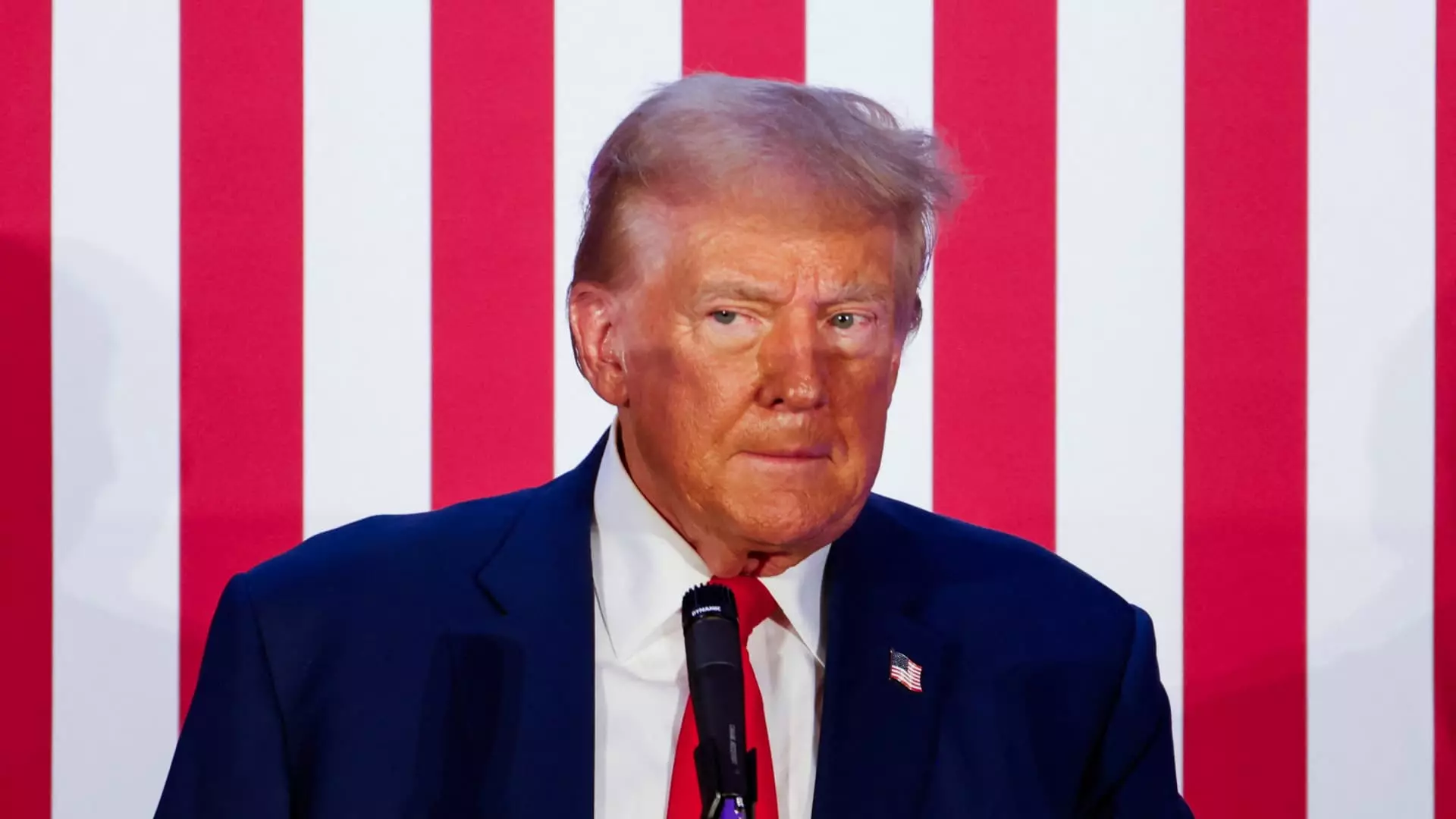The unfolding saga of Trump Media, the parent company of Truth Social, has taken a tumultuous turn with a recent judicial ruling that mandates a reconsideration of stock allocation for its investors. This complex legal development centers around a significant dispute with one of its investors, ARC Global, and highlights the intricate relationship between corporate governance, investor rights, and market perception. The implications of this ruling resonate beyond mere share distribution; they touch on broader themes concerning market confidence and the challenges faced by companies that straddle the lines between business and political affiliations.
At the heart of the controversy lies a ruling by Vice Chancellor Lori Will of the Delaware Chancery Court. The judge determined that Trump Media, via its merger with Digital World Acquisition Corp. (DWAC), had undervalued the stakes granted to ARC. This ruling comes at a pivotal moment, just days before ARC Global and other key insiders, including majority owner Donald Trump himself, are poised to sell their shares. Such timing is critical, as it feeds into broader speculations regarding the company’s financial health and investor sentiments.
The case’s crux revolves around the conversion of shares from Class B to Class A, determining how many shares ARC is entitled to based on the merger arrangements. DWAC proposed a conversion ratio of 1.3481 to 1, while ARC contended for a more favorable 1.8178 to 1. Ultimately, the court settled on a middle ground, establishing a ratio of 1.4911 to 1. This decision is significant, as it establishes a framework for how shares will be allocated going forward, impacting the financial landscape for both ARC and Trump Media.
The immediate aftermath of the ruling raises integral questions about market confidence in Trump Media. The potential for ARC and other insiders to cash out their substantial stakes could lead to a substantial infusion of shares onto the market. While this might initially seem beneficial for individual investors looking to sell, the influx of stock could drastically reduce its value. The company’s market capitalization, still boasting over $3.3 billion, has already suffered a staggering decrease in value due to several quarters of multimillion-dollar losses amidst weak revenue.
Furthermore, the perception of investments in Trump Media as proxies for political support complicates the emotional landscape of its shareholders. Investors are not merely betting on financial returns; they are aligning their investments with the political fortunes tied to Donald Trump. This multi-layered investment motivation creates a precarious situation where market performance can become intertwined with political developments, creating volatility that is atypical in more traditional business environments.
Broader Implications for Corporate Governance
Beyond the immediate financial implications, the ongoing disputes surrounding Trump Media highlight critical issues within corporate governance. The legal battles reveal how investor agreements can become contentious, particularly when complex financial structures and prominent political figures are involved. The ruling signifies that corporate stakeholders must tread carefully, ensuring that agreements are respected and upheld to avoid legal ramifications that could undermine trust and investment.
Moreover, the looming presence of other lawsuits and potential sales of shares by ARC and other insiders further complicate the narrative. As Trump Media navigates these turbulent waters, the need for transparent governance practices becomes paramount. Sustaining investor confidence and ensuring equitable share distribution must remain at the forefront of the company’s priorities. Otherwise, the mistrust bred from legal disputes and political entanglements threatens to erode the very foundation upon which investor relationships are built.
The unfolding legal issues surrounding Trump Media serve as a case study of the complex intersection between business and governance in contemporary markets. As the company stares down the dual challenges of managing investor expectations and political affiliations, the path forward appears fraught with difficulty. Investors and stakeholders alike are left to consider the ramifications of these disputes on market confidence and the broader socio-political landscape, while also questioning the stability of their investments in such a polarized environment. As history has shown, navigating these nuances will be pivotal for the future stability and reputation of Trump Media.


Leave a Reply